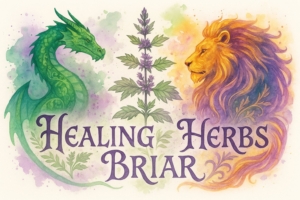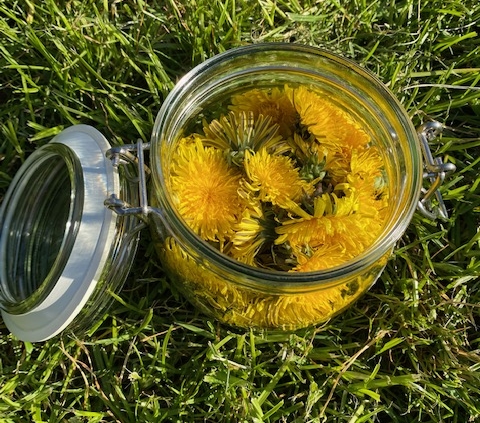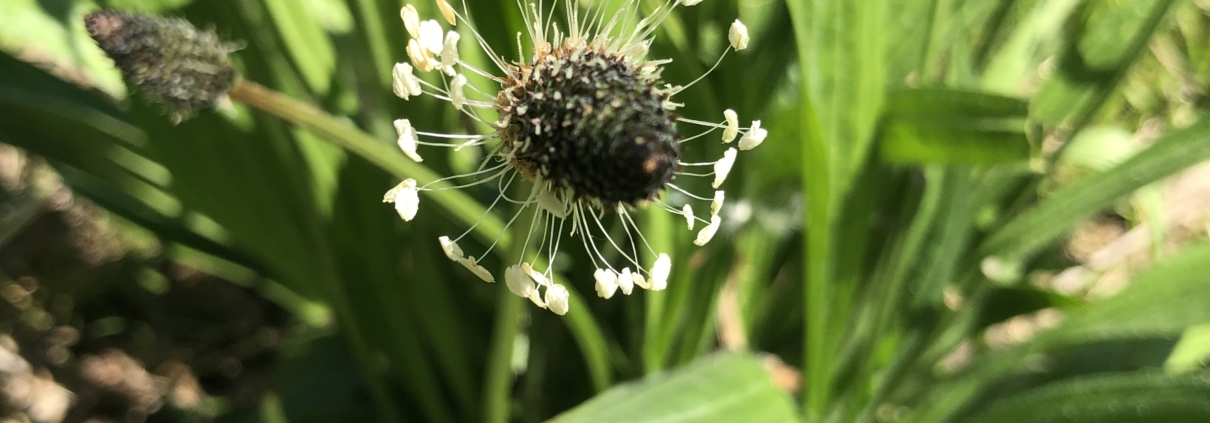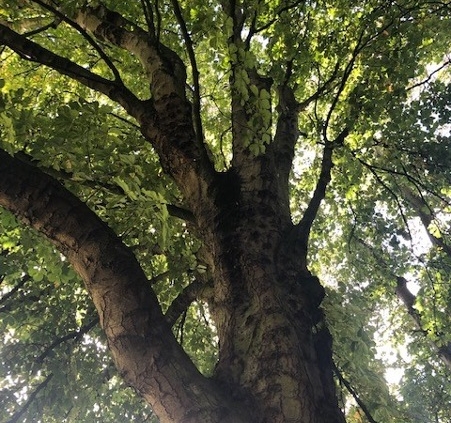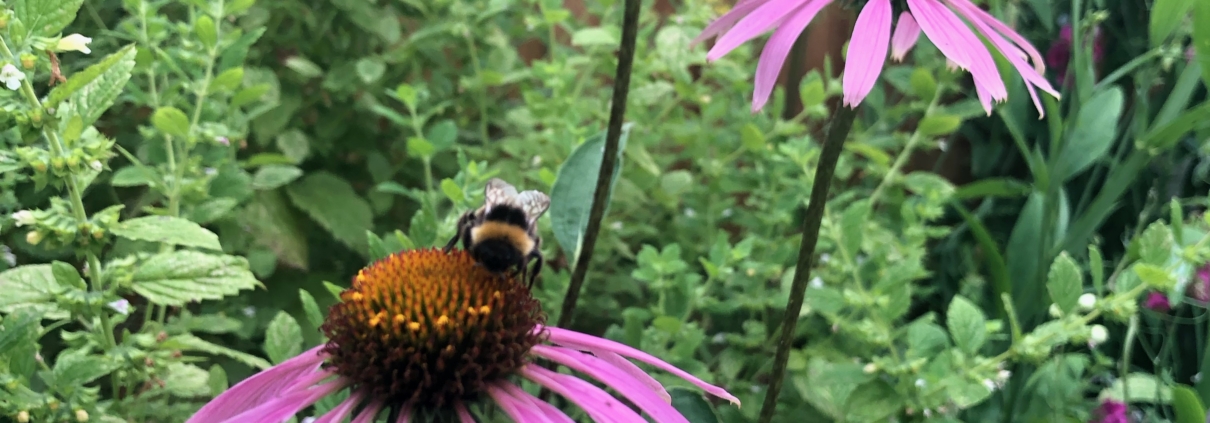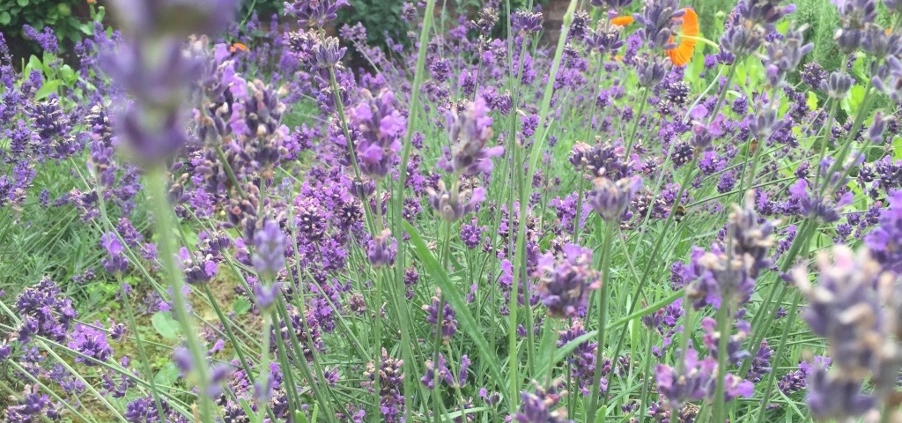Ribwort Plantain
Horse chestnuts
Lovely morning foraging for horse chestnuts. Going to put 1 in each corner of every room to deter the spiders now 🕷🕸
Some of the uses of Horse chestnut
- Tightens and tones veins
- Used for varicose veins and haemorrhoids.
- Spider deterrent 😊
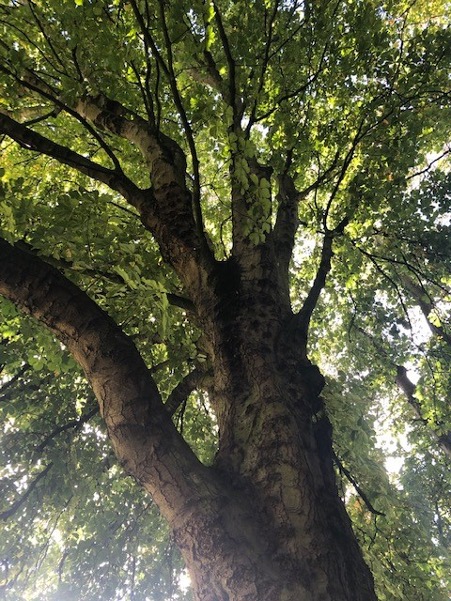


Electric Echinacea
I absolutely love it when the Echinacea comes out. It’s such a happy herb with huge beautiful daisy-like flowers and the bees can’t get enough of it.
It’s a very popular well known herb and is mostly known for it’s immune boosting actions. This is largely due to the constituents in Echinacea called Alkamides, which are also responsible for the tingly (Electric) feeling on your tongue when you taste Echinacea.
I use Echinacea for lots of my patients in Anti-Viral mixes in the Autumn and Winter when they have chest infections, coughs, colds and when I want to support and boost the immune system. I also use it for abscesses, sore throats, gum disease, ulcers and in many situations where there is a positioned system. It is also used by herbalists for patients who are experiencing negative reactions after having vaccinations and it is used as a tonic for the body and adrenal glands.
It has a fascinating history. The American Indians observed long ago that rattlesnakes would eat Echinacea after being bitten by itself (that’s another story), they would then retreat and recover, which led to the discovery of the plant.
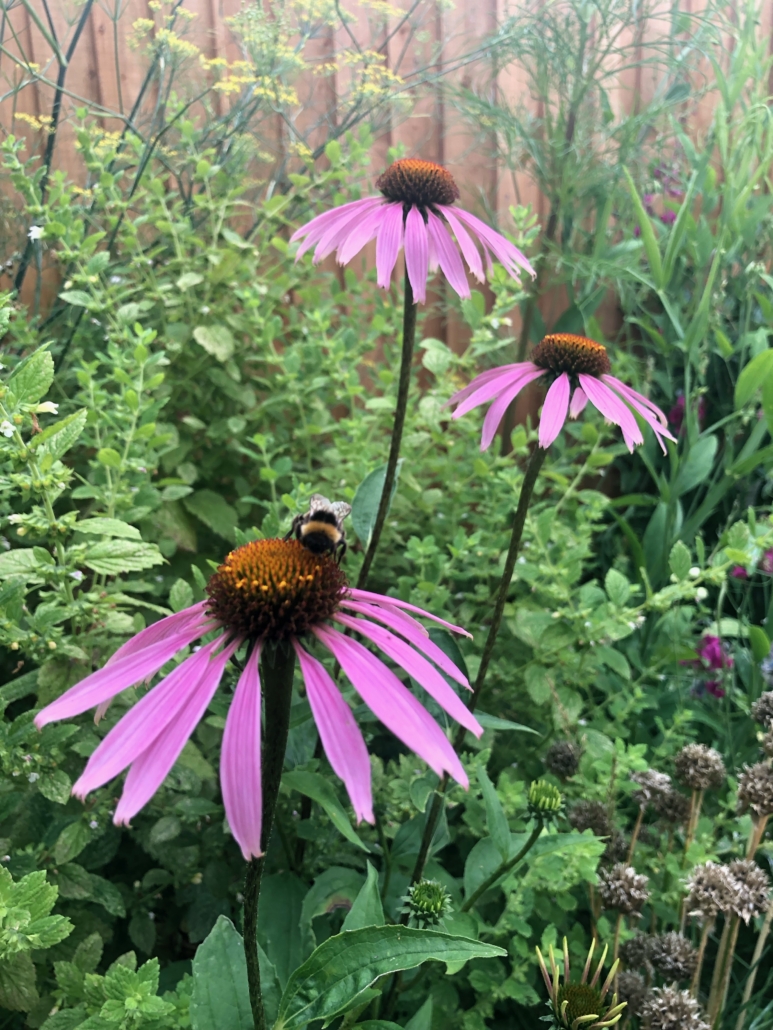
Immune boosting
Calm and relaxed
Anxiety affects us all from time to time but it can be crippling for some. In these stressful times we need our herbal allies support more than ever to help us relax, cope with our fears and find our way back to a place of balance.
Most of the herbs that help to achieve this are called ‘nervines’. These herbs support the nervous system by acting directly on the symptoms or by nourishing and restoring the nervous system itself. They are used to support us with anxiety, insomnia, tension and depression. Many of the following herbs have anti-spasmodic actions and have a calming and balancing effect on the nervous system
The information given below is not an exhaustive list of the actions of these herbs; to be honest it’s hard to focus on just the calming and relaxing actions of the herbs. Herbs are just so amazing! They have such a huge amount of actions and when learning about herbal medicine we tend to focus on only a few actions for each herb.
I have my favourite herbs for different conditions / situations as do other herbalists. I’m awestruck again and again to learn that the herbs I know so well are used in such different ways by different herbalists and that’s’ because they are jam packed with amazing qualities that work so well with us mere humans.
These are my favourites and what I use them for the most.
Vervain (Verbena officinalis)
I think this is my all-time favourite herb. It has a bitter taste, bitter herbs work on the liver and the liver is where we store a lot of our anger or fear. Vervain’s bitter action gives the liver a ‘poke’ to help us to process our emotional pain and trauma and it provides a supportive energy that allows you to work through your emotions at the speed that is right for you as an individual. I love it because it helps you if we want help but it isn’t pushy about it.
Lavender (Lavendula officinalis)
I absolutely love lavender it’s such a useful herb. It is bitter so it works on the liver to help us process our emotions and ‘ground’ us. It has a sedating and uplifting effect on the nervous system which helps us to relax and lifts the spirits. I use Lavender for shock along with the ‘Bach Flower Rescue Remedy’. It is very soothing and relaxing, a few drops on your pillow can help you to sleep and it is lovely in a warm bath to help you relax and unwind. It is used for digestive issues and I find it really helpful for digestive issues that are linked to emotions such as IBS. I’ve found that a lot of my patients suffering from IBS tend to push their feelings down into their stomach and lavender helps us release these emotions and along with the emotions the pain. Lavender is also great for cuts, blisters and burns. I could ramble on about lavender for hours.
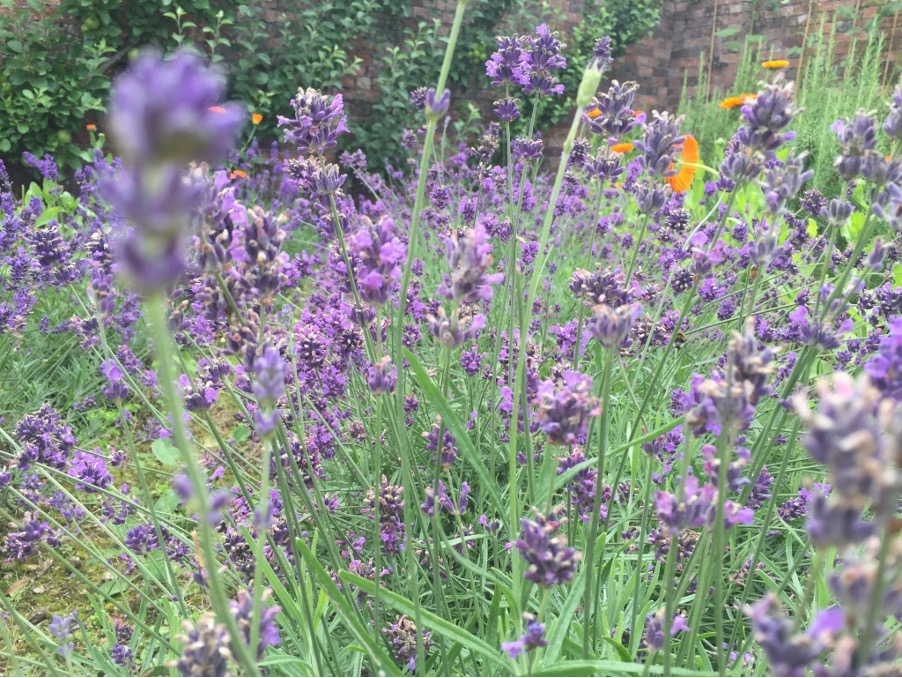
Pasque flower / Wind Flower (Anemone pulsatilla)
This is my go-to herb for panic attacks and for people who feel overwhelmed by their emotions or lost in them. The analogy I always remember from a Chinese Medicine perspective is that this herb is useful for when the individual feels that they are adrift in a sea of their emotions without a paddle or sail. Wind flower helps the individual to feel anchored emotionally.
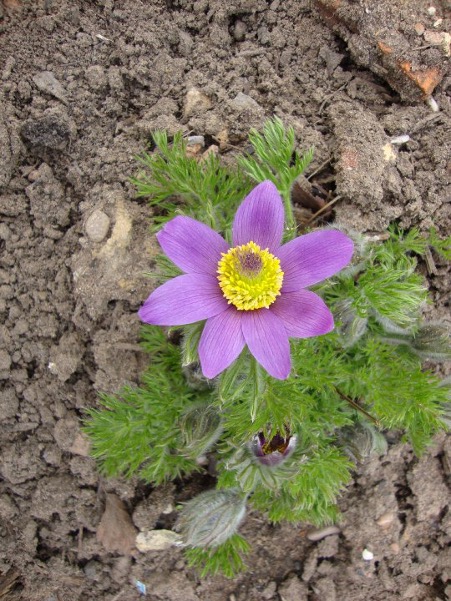
Passionflower (Passiflora incarnata)
Passionflower is a bitter herb, it has anti-spasmodic actions and relieves physical and mental tension and calms the central nervous system. I and many other herbalists use it for mental tension and specifically to prevent circular thinking, the kind of thinking that keeps you awake at night and makes you feel a slave to your minds.
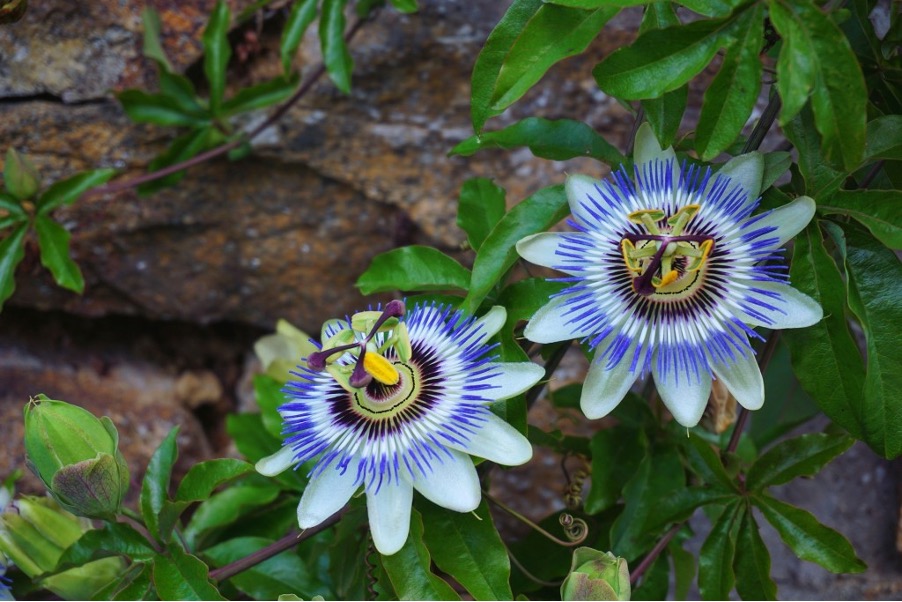
Skullcap (Scutellaria lateriflora)
I use skullcap to relieve physical and mental tension and to help the individual to relax. I think it’s like breathing a deep sigh. Like passionflower it is an anti-spasmodic which has a calming effect on the central nervous system.
Lemonbalm (Melissa officinalis)
It is known as a really cheery herb. Its lemony aromatic oils help to lift the spirits and it tastes great as a tea. It is a very useful herb as it has an anti-spasmodic action making it great for stomach cramps and wind and it has a calming effect on the heart and nerves. It also has anti-viral actions which can be useful for all kinds of viruses from cold sores to flu. Use with caution in pregnancy as it has a mild uterine stimulant effect.

Valerian (Valerian officinalis)
Considered to be one of the best herbs for insomnia and it has strong anti-spasmodic actions. Valerian is stimulating to cats, as it contains iridoid glycosides which are also what cats love about Catnip (Nepeta Cataria) and from personal experience it can be stimulating to people with cat like qualities. It wakes me up whereas it puts my husband to sleep (he’s very dog-like). It’s very relaxing for the nervous system which helps with symptoms of anxiety, high blood pressure, restlessness and palpitations. Its anti-spasmodic actions also make it calming for the stomach.
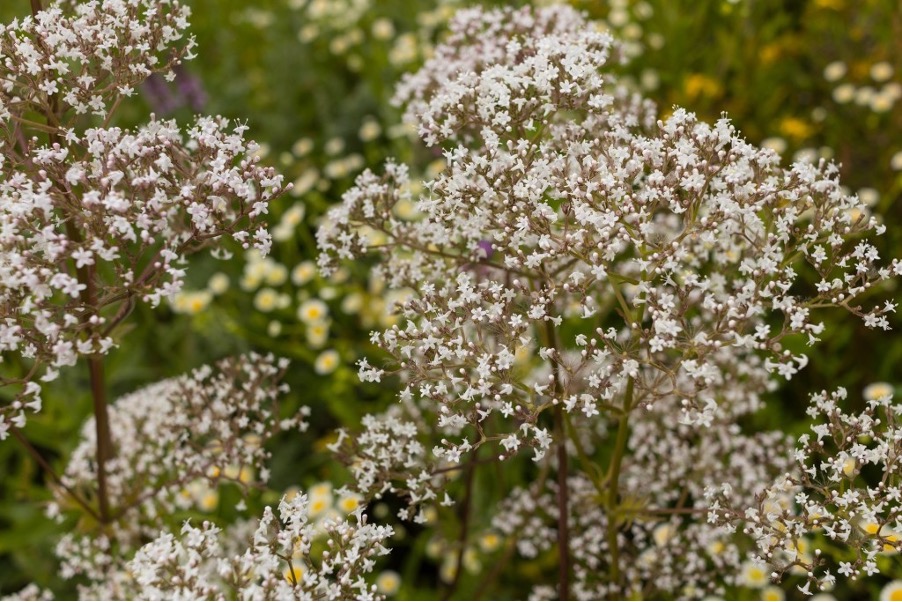
Chamomile (Matricaria recutita)
A well know herb for calming the mind and digestion. I use it for anxiety, insomnia and to help calm the body and mind in general for people suffering from allergies. It’s the herb I think of when someone is suffering from irritability for any reason and for people suffering from irritating conditions such as eczema.

Herbal Safety
Herbs are very powerful and should be respected which is why it is always best to see a qualified herbalist to ensure that the herbs are right for you.
- Pregnancy– Check to make sure that it is safe to take a particular herb while pregnant.
- Medications – Herbs can interact with medications so it is important to check that they are safe to use before taking.
- Allergies –Caution! some people do have allergic reactions or sensitivities to specific herbs or herbal plant families.
